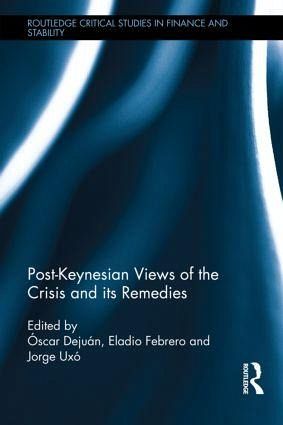
Post-Keynesian Views of the Crisis and its Remedies
Versandkostenfrei!
Versandfertig in 1-2 Wochen
118,99 €
inkl. MwSt.

PAYBACK Punkte
59 °P sammeln!
This book, from a top group of international economists, analyzes the causes, consequences and evolution of the global financial crisis from a variety of post-Keynesian perspectives. It then presents a case for realistic and essential remedies. The book is both theoretical and applied, with a global reach and a particular focus on the European debt crisis.














